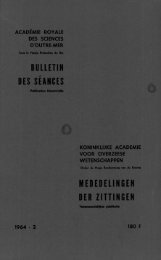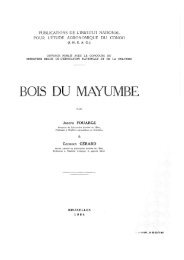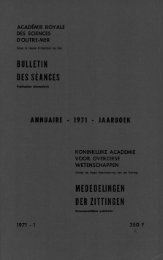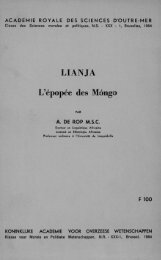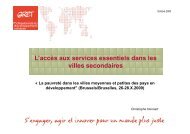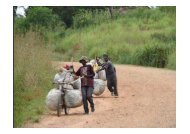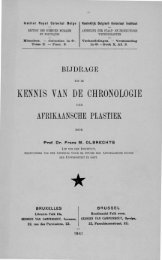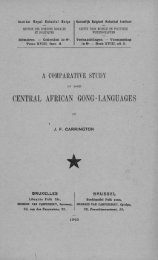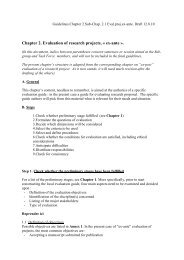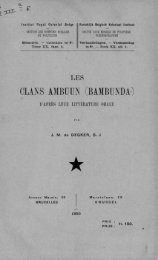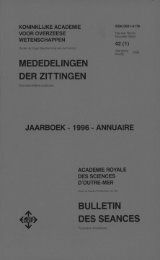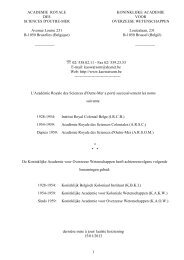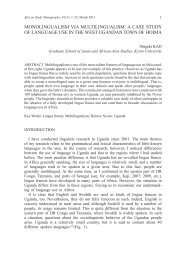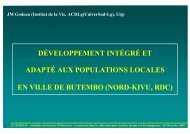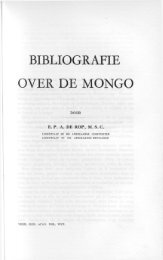(1973) n°3 - Royal Academy for Overseas Sciences
(1973) n°3 - Royal Academy for Overseas Sciences
(1973) n°3 - Royal Academy for Overseas Sciences
You also want an ePaper? Increase the reach of your titles
YUMPU automatically turns print PDFs into web optimized ePapers that Google loves.
— 509 —<br />
SAMENVATTING<br />
De ontdekking van de volledige cyclus van de menselijke Plasmodiums<br />
werd meer dan veertig jaar vertraagd door het feit<br />
dat een eerste oriëntatie der opzoekingen steunde op de malaria<br />
bij vogels.<br />
Alhoewel men de verschillende cyclussen kende buiten de<br />
rode bloedlichaampjes van de verscheidene menselijke parasieten<br />
en van talrijke diersoorten, blijft in bepaalde gevallen nochtans<br />
de oorsprong van de relapsus en de reden van de verlenging<br />
der incubatieperiode bij Plasmodium vivax een vraagteken.<br />
In t r o d u c t io n<br />
* * *<br />
I propose to describe the discovery of the third cycle of the<br />
malaria parasites of primates including those of man, and to<br />
discuss briefly the lacunae which remain. But first it is necessary<br />
to mention the pointers which gradually indicated that such<br />
a phase of development must exist.<br />
It is a story af false clues. The first and most notorious<br />
was the fallacious observation of Sc h a u d in n (1 9 0 3 ) that<br />
the sporozoite made a direct entry into the erythrocyte; it was<br />
there<strong>for</strong>e assumed to be unnecessary to consider the existence<br />
of a tissue cycle. I shall indicate other misleading clues in the<br />
course of this paper and you will see what a warning they<br />
constitute to the research worker who can be led astray <strong>for</strong><br />
many years by retaining « preconceived ideas ».<br />
Almost from the beginning of the modern history of malaria,<br />
La v e r a n (1880) had realised that a second cycle must <strong>for</strong>m<br />
part of the life history of the malaria parasites which he had<br />
demonstrated in the blood of soldiers in Algeria in 1880. The<br />
second or mosquito cycle was elucidated in avian malaria seventeen<br />
years later by Ross (1897) in India, while the Italians<br />
(G rassi et al. 1898) confirmed transmission by anopheline<br />
mosquitoes to man during the following year.<br />
This seemed to be the end of the story until G rassi (1 9 0 0 )<br />
suggested that the mosquito stage — the sporozoite — was



